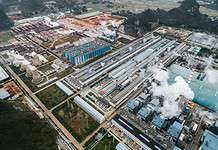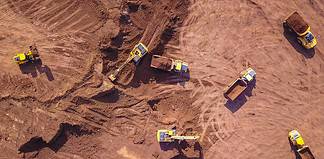 RECENTLY introduced tariffs on coal exports to China will be scrapped under a free trade agreement (FTA) to be signed this year.
RECENTLY introduced tariffs on coal exports to China will be scrapped under a free trade agreement (FTA) to be signed this year.
Under the long-awaited China-Australia FTA, announced by Prime Minister Tony Abbott and Chinese President Xi Jinping in November, the 3 per cent tariff on coking coal will be removed on signing the agreement, while the 6 per cent tariff on thermal coal will be gone within two years.
The tariffs were introduced last year in a surprise blow to Australia’s beleaguered coal exporters, which send about $6 billion of product to China each year and were already feeling the strain of low coal prices.
The FTA will remove tariffs on 99.9 per cent of Australia’s current resources exports to China, according to the Department of Foreign Affairs and Trade, including the 8 per cent tariff on the $1.3 billion worth of alumina shipped to China each year.
Refined copper and allots, nickel mattes and oxides, unwrought zinc, copper waste and scrap, unwrought aluminium, aluminium waste and scrap, unwrought nickel, titanium dioxide and other mineral substances will also be able to enter China duty free.
The deal will also see the threshold at which private sector Chinese companies investing in Australia must be reviewed by the Foreign Investment Review Board raised from $248 million to $1.078 billion.
Details on new labour provisions under the FTA were not released and will be unveiled once the agreement is finalised.
The Minerals Council of Australia (MCA) welcomed the agreement, which it said would save the minerals and energy trade nearly $590 million in costs. “The agreement is a watershed achievement in Australia’s relationship with China,” MCA chief executive Brendan Pearson said.
“At the sectoral level, the free trade agreement will further strengthen a minerals and energy trade already worth more than $80 billion annually.
“Importantly the announcement will strengthen a growing investment relationship, with the total stock of Chinese foreign investment in Australia at $32 billion in 2013, including substantial investment in the minerals sector.”











































